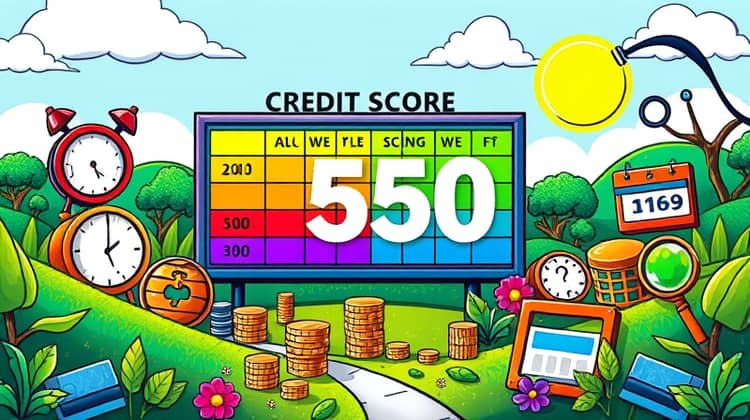Understanding How Loans Impact Your Credit Score: What You Need to Know

Loans can be beneficial for managing your finances, but they can also have a significant impact on your credit score. Understanding this relationship is crucial for maintaining a healthy financial status. In this article, we will explore the basics of credit scores, how different types of loans influence these scores, and tips for managing loans effectively to protect your credit rating.
Credit scores are a reflection of your creditworthiness and are used by lenders to determine the risk of lending to you. A good credit score can lead to better loan terms and lower interest rates, while a poor score can restrict your borrowing options and increase costs. Knowing how loans affect your credit score can help you make informed financial decisions.
The Basics of Credit Scores

A credit score is a numerical representation of your creditworthiness, which ranges from 300 to 850. Various factors influence your credit score, including payment history, amounts owed, length of credit history, new credit, and types of credit used. Understanding these factors is essential for anyone looking to maintain or improve their score.
Your credit score plays a key role in your financial life, affecting your ability to secure loans, credit cards, and even rental agreements. It’s important to monitor your score regularly and understand the elements that contribute to it, especially if you intend to take on new debt.
- Payment History (35%)
- Amounts Owed (30%)
- Length of Credit History (15%)
- Types of Credit (10%)
- New Credit (10%)
By being aware of these components, you can take steps to improve your credit score, particularly when it comes to managing loans. Each loan you take out, whether it's for education, a vehicle, or a home, can affect your score in various ways.
The Relationship Between Loans and Credit Scores

Loans significantly impact your credit score, and understanding this correlation is vital for your financial health. When you apply for a loan, lenders perform a hard inquiry on your credit report, which can temporarily lower your score. However, responsible management of these loans can ultimately lead to a higher score over time.
How Different Types of Loans Affect Your Score

Not all loans influence your credit score in the same manner. Each type of loan has its own implications based on how it is managed and your overall credit profile. Understanding these nuances can help you navigate your financial life better and make more informed decisions regarding borrowing.
Here’s a closer look at how specific types of loans can affect your credit score.
1. Student Loans
Student loans are often considered installment loans, which means you’re making fixed payments over time. Managing student loans wisely can help build your credit score, especially if you make consistent, on-time payments.
- Positive payment history can enhance your credit score.
- Defaulting can severely damage your score and borrowing ability.
- Income-driven repayment plans can help manage payments.
It's essential to stay on top of your student loan obligations to prevent any negative impacts on your credit score.
2. Auto Loans
Auto loans can also positively or negatively affect your credit score, depending on how they are handled. Like student loans, these are typically installment loans.
- Making timely payments boosts your score.
- Late payments can result in a significant drop in your score.
- The total balance owed affects your overall credit utilization.
Consistently managing your auto loan responsibly will help maintain or improve your credit history.
3. Personal Loans
Personal loans can come in many forms, including secured and unsecured loans. They may serve various purposes, such as debt consolidation or home improvements.
- Using personal loans to pay off higher-interest debts can be beneficial.
- Late or missed payments severely impact your credit score.
- A good repayment history builds trust with lenders.
Effectively managing personal loans can influence your overall credit score positively when they are paid off in a timely manner.
4. Mortgages
Mortgages are one of the largest types of loans most individuals take on, and their impact on credit scores can be profound. Since mortgage payments often span decades, maintaining a good payment history is crucial.
Making on-time mortgage payments can significantly boost your credit score, signaling to lenders that you are a responsible borrower.
- A good mortgage payment history can improve your credit score.
- Missing payments can cause long-lasting negative impacts.
- Closing a mortgage account can affect your credit history length.
Managing your mortgage properly is essential for maintaining a strong credit score, which then enables better borrowing prospects in the future.
Tips for Managing Loans to Protect Your Credit Score

To ensure that loans positively impact your credit score, it is crucial to manage them well. Here are some tips:
1. Always make payments on time. This is one of the best ways to maintain a good credit score. Minimize late or missed payments to avoid damaging your score.
Conclusion

In conclusion, understanding how loans affect your credit score is vital for maintaining financial health. Each type of loan impacts your credit in different ways, and being proactive in managing them is essential.
Whether it's a student loan or a mortgage, the responsibility lies with you to ensure that payments are made on time and that debts are managed wisely.






